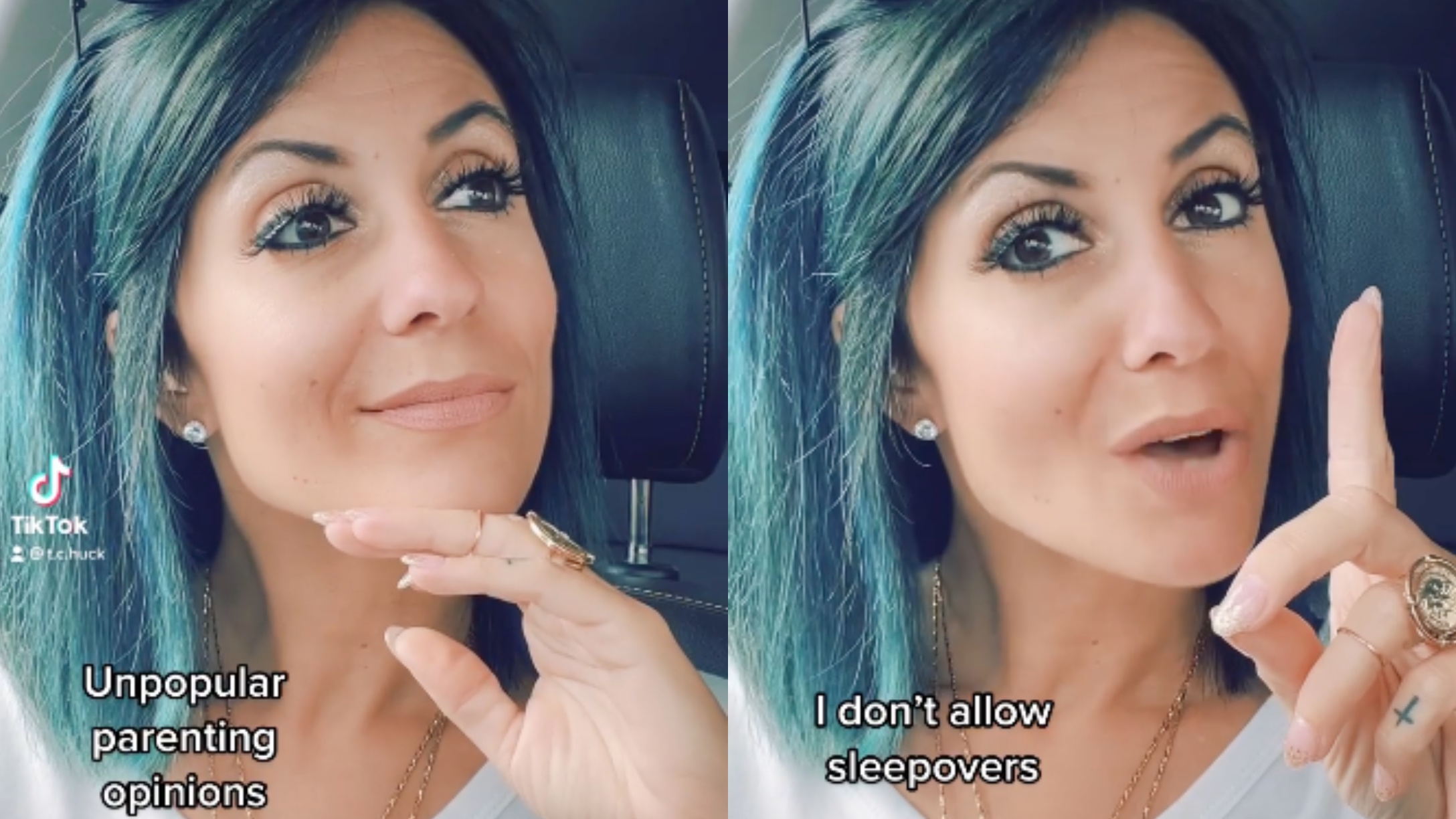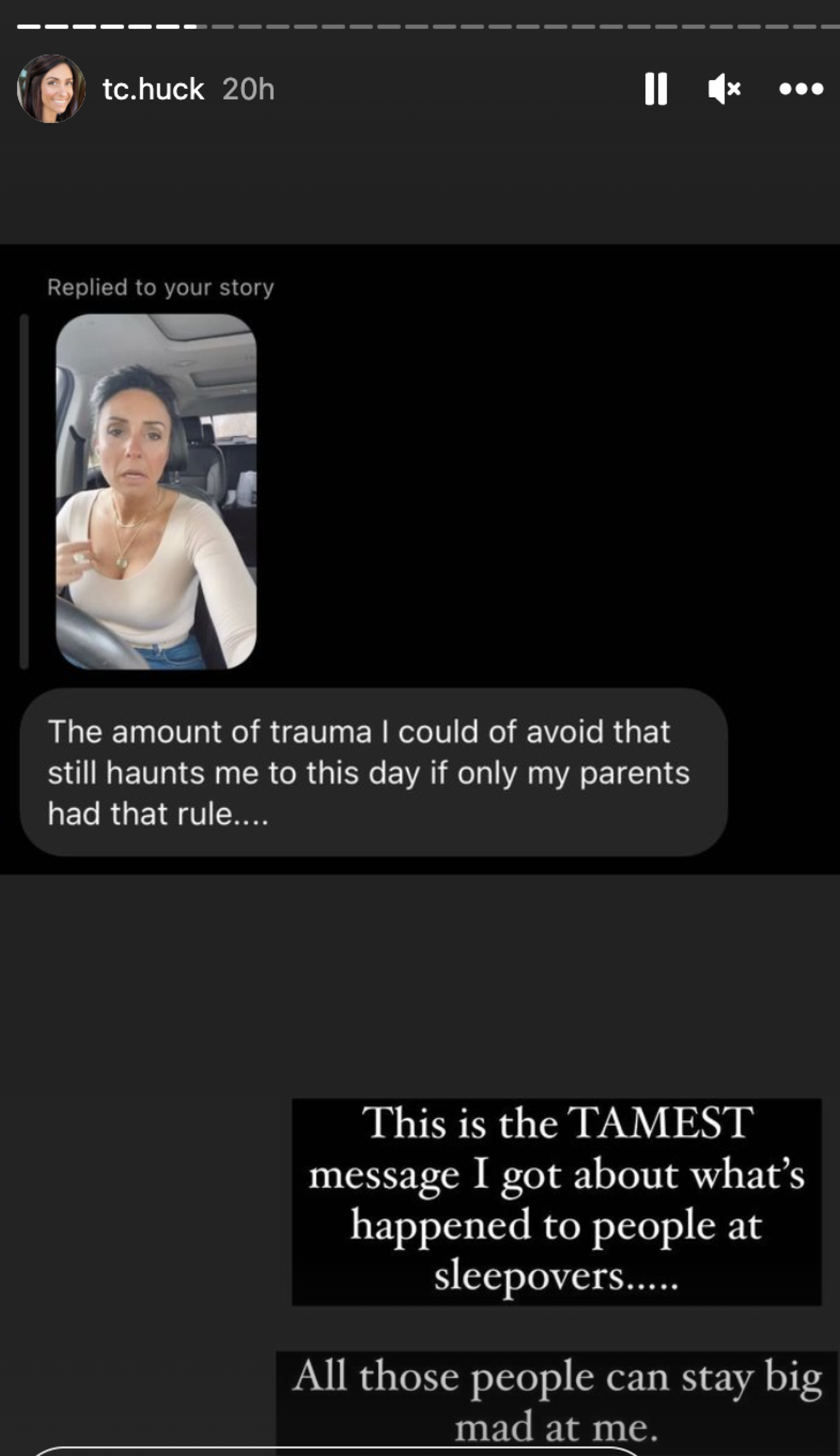
Sleepovers were the cornerstone of my elementary school social calendar. I knew I had made a true friend when I was invited to spend the night at their house or they were coming to spend the night over mine. Still, there were a lot of moving parts that had to be in place before a sleepover could work.
My mom had to know the girl’s parents — most likely the mother. If she didn’t know them well, she had to have an in-depth conversation with them, oftentimes the day of the sleepover itself. There was a debriefing with me as well. Did I want to go? Did I fully understand that I could call and my mom or dad would pick me up immediately?
Looking back, I’m sure it was a lot for my parents — especially my mom — to navigate. And as a parent now, I understand why some people just don’t want to let their children have sleepovers at all. One mom on TikTok shared why she doesn't allow sleepovers, and people have strong opinions about it.
Tara shared three opinions, but the sleepovers is all people wanted to talk about.
Recently Tara Huck shared a few of her parenting hot takes on social media. They were as follows:
- “As long as school and chores are done, I don’t limit screen time.”
- “If they won’t eat what I make, they don’t eat.”
- “I don’t allow sleepovers.”
Of the three opinions, there was one that seemed to spark the most discussion: the sleepovers.
Opinions about Tara's hot take were split.
Opinions were split, with some parents understanding exactly where Tara was coming from and others believing that sleepovers are an important part of child development.
“Teach your kid what’s appropriate and inappropriate. Get to know the family and people they want to have a sleepover with or just invite them to your house if you feel safer,” one user wrote.
Others knew firsthand about the potential dangers of sleepovers. “I don’t blame you with the sleepovers either. Bad things can happen … happened to me as a kid. You just never know.”
Tara said children are the most vulnerable when they're asleep.
Wherever people landed on the issue, they watched and shared the video. Tara told Today that it’s been seen more than 8 million times on both Instagram and TikTok.
For Tara, the thought of having someone else be responsible for her child’s safety and wellbeing just doesn’t make her feel comfortable.
"I feel like kids are most vulnerable when they're sleeping," she said. "I'm just trying to eliminate one very small factor that could potentially harm them. If they could come out of their childhood without having had a very traumatic experience, whatever that experience could be, well, that's all I'm trying to do."
Tara is sure that her children aren’t missing out on much.
“Things are ever-changing, parenting is ever-changing, the world is ever-changing,” she said. “So could things happen and I change my mind later in life? Maybe. But as of right now, I feel very strongly about the fact that if all you’re missing from a get-together is a sleeping part, you can sleep in your own beds. You’re not missing out."
Experts say parents should reduce harm instead of banning sleepovers in general.

Experts acknowledge that there are both pros and cons associated with sleepovers. Sara Douglas, a Manhattan pediatric neuropsychologist, told Today that parents should try to focus on harm reduction instead of banning sleepovers altogether.
In addition to knowing your child’s social and emotional maturity level, Douglas advised that parents feel comfortable asking the other parents questions about gun ownership, the possibility of leaving early, food concerns, and about other people who may be in the home.
Douglas says what children have the potential to learn away from the constant surveillance of their parents is invaluable.
Douglas said sleepovers can be instrumental in a child’s development. Sleepovers provide children with the opportunity to have limited adult supervision and more independent social interaction. These exchanges can teach children to problem solve, self-regulate, and can build a sense of confidence.
Even if things don’t go well, it can be an opportunity for growth, Douglas said. “If kids end up getting into a fight and don't talk to each other for the rest of the sleepover, I actually don’t think that’s so bad," she shared with Today. "That’s how you learn to navigate the social world."




